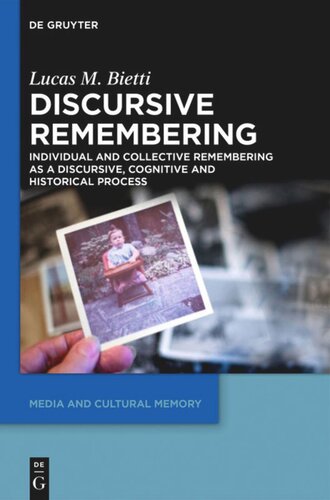

Most ebook files are in PDF format, so you can easily read them using various software such as Foxit Reader or directly on the Google Chrome browser.
Some ebook files are released by publishers in other formats such as .awz, .mobi, .epub, .fb2, etc. You may need to install specific software to read these formats on mobile/PC, such as Calibre.
Please read the tutorial at this link: https://ebookbell.com/faq
We offer FREE conversion to the popular formats you request; however, this may take some time. Therefore, right after payment, please email us, and we will try to provide the service as quickly as possible.
For some exceptional file formats or broken links (if any), please refrain from opening any disputes. Instead, email us first, and we will try to assist within a maximum of 6 hours.
EbookBell Team

5.0
20 reviewsThis book aims at building a bridge between the social and political aspects of remembering and the cognitive and discourse processes driving such activities. By analyzing these cognitive and discursive processes, Bietti explores practices of individual and collective remembering in institutional and private settings in relation to periods of political violence in Argentina. This books begins to fill the conceptual gap between cognitive oriented approaches to remembering that draw conclusions about how memory functions in the mind without a detailed discourse analysis of the communicative interaction in which this process unfolds, and the discourse and pragmatic oriented approaches that are mainly interested in analyzing the rhetorical features of conversational remembering, in some cases disregarding that there are underlying cognitive mechanisms that drive the construction of discourses about past experiences. The empirical analysis shows that individual and collective remembering in relation to periods of political violence in Argentina vary in pragmatic ways due to the fact that these accounts of the past were constructed with reference to the communicative situation. Thus, this book also aims at shedding new light on the current practices of commemoration and remembrance related to periods of political violence in Argentina, in public and private settings.